Nutribullet SmartSense review – a fun, affordable blender the whole family will enjoy using
The Nutribullet SmartSense Combo makes velvety soups, large smoothies (and slightly lumpy dips) at the touch of a button
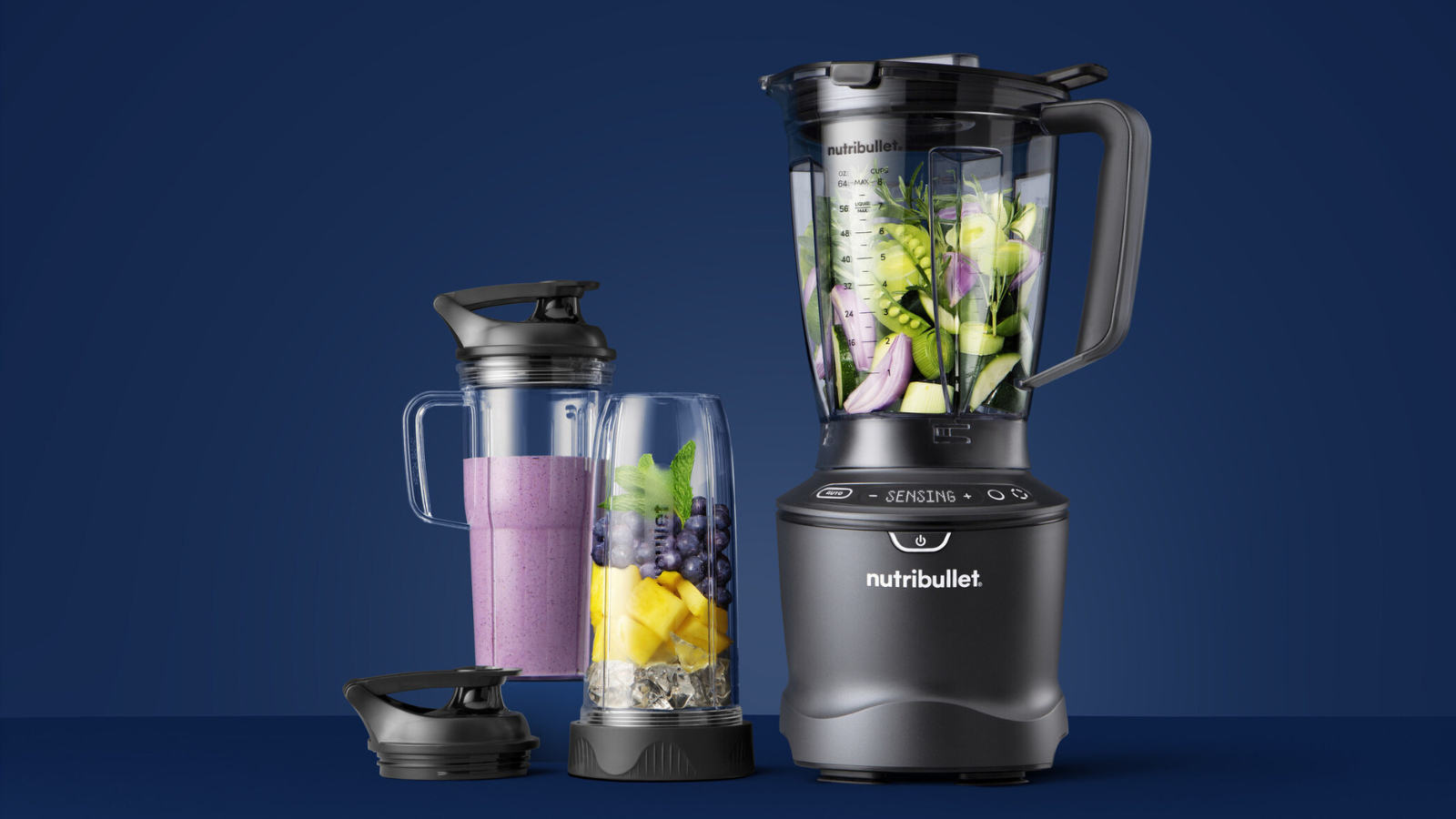
If you’re looking for an affordable, family-friendly blender for smoothies and soups, the SmartSense Nutribullet Combo is a fantastic choice. It comes with two personal blending cups and lids, too – so you're really getting value for money. However, if you’re a fan of frozen cocktails or peanut butter, you'll need a more advanced option.
-
+
Affordable
-
+
Large capacity
-
+
Easy to use
-
+
Great for everyday recipes like smoothies and soups
-
+
Range of accessories
-
-
Noisy at higher speeds
-
-
Struggles on dry blends
You can trust Homes & Gardens.
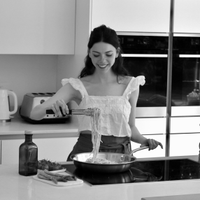
Nutribullet has been a household name for its compact and reliable bullet blenders, but how does it measure up when it comes to larger, family-sized models? After all, blending for the whole family requires something a little extra – it needs to be fun, easy, and affordable.
Enter the Nutribullet SmartSense Combo. Following in the footsteps of the Nutribullet Combo (which we also rated a respectable 4/5 stars), this new version brings smarter features and a modern design. In my tests, I found it to be simple, user-friendly, and a blast to use for everyday tasks. That said, it did struggle with tougher recipes like making hummus and peanut butter, and it got pretty noisy at higher speeds.
While the SmartSense Combo didn’t make our list of best blenders, it makes up for its lack of high-end features with its simplicity, speed, and affordability. Here’s what my tests revealed.
Specifications
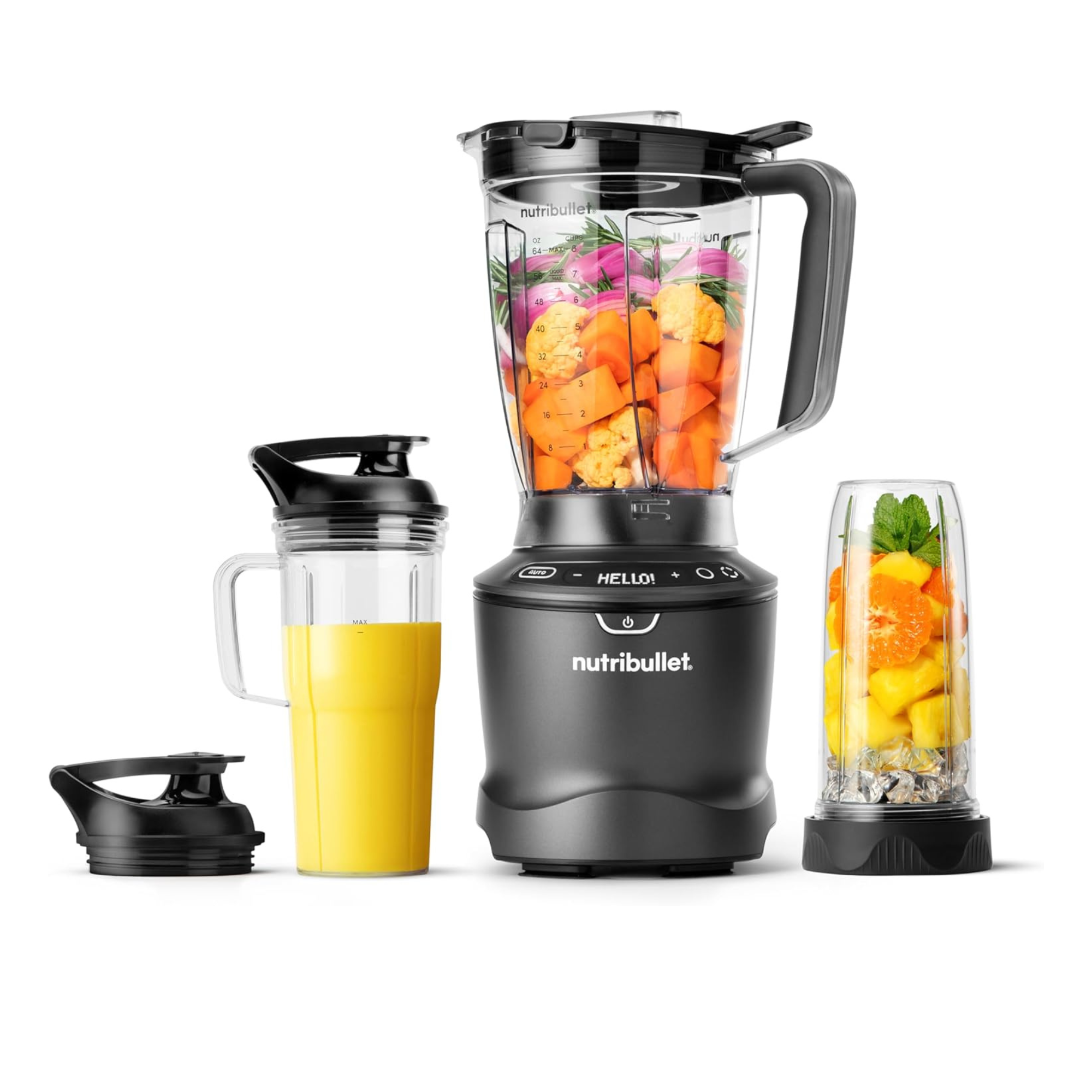
Capacity | 64 oz |
Wattage | 1400 |
Materials | BPA Free plastic |
Speed settings | 5 |
Presets | Blend, pulse and 'Smart Sense' |
Cleaning | Dishwasher-safe |
Warranty | 1 year limited |
Who would it suit?
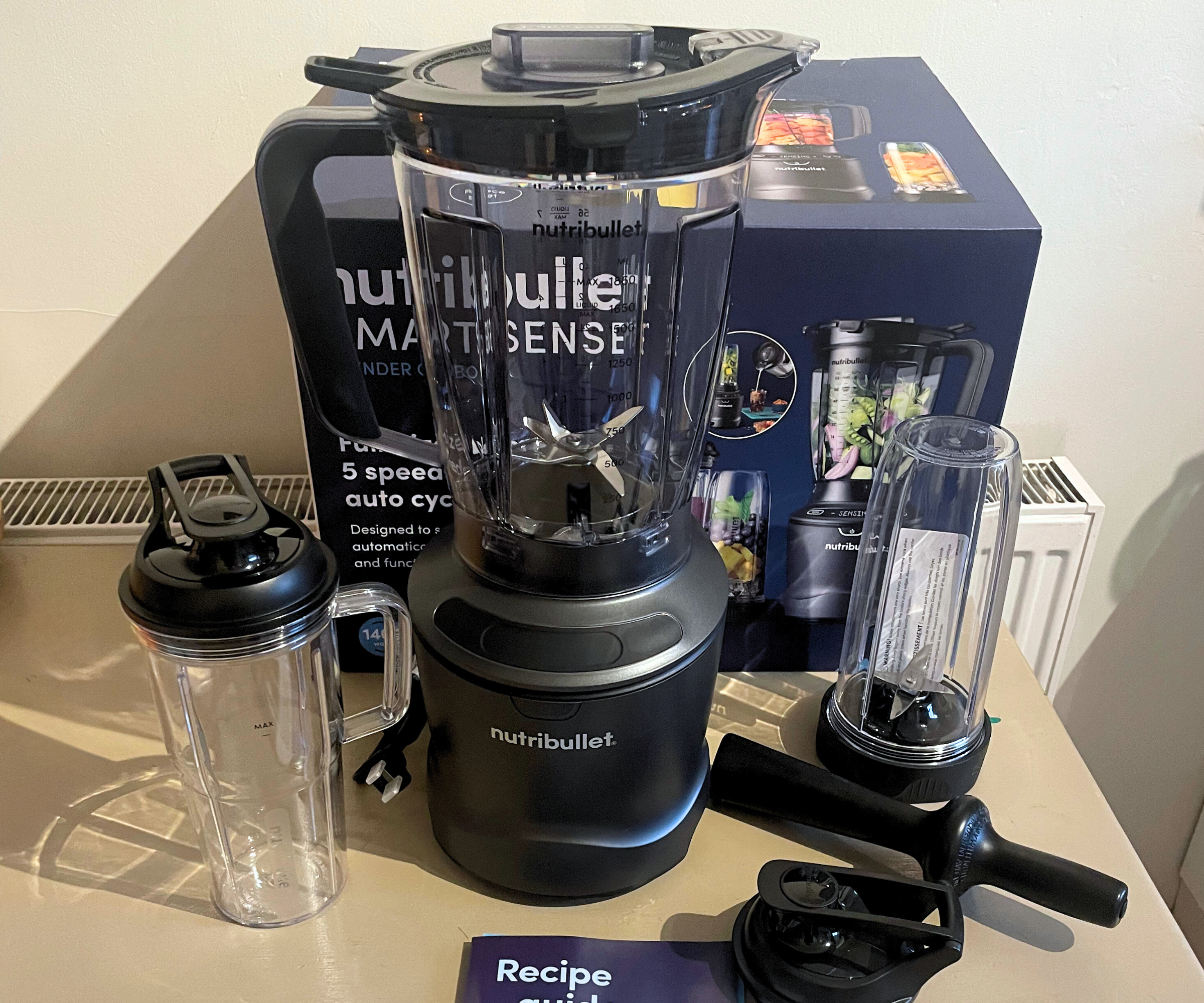
If you want a blender to make simple smoothies, soups, plant milks and more – this is a solid choice. At $149, it’s perfect for families who want some power without the price tag of high-end models. I actually named it one of the best Vitamix alternatives.
The 64-ounce capacity makes it ideal for batch cooking, but frozen cocktail enthusiasts should note that it doesn’t crush ice. Plus, it struggled on hummus. I'll go into more detail in my testing notes further down the page.
What is it like to use?
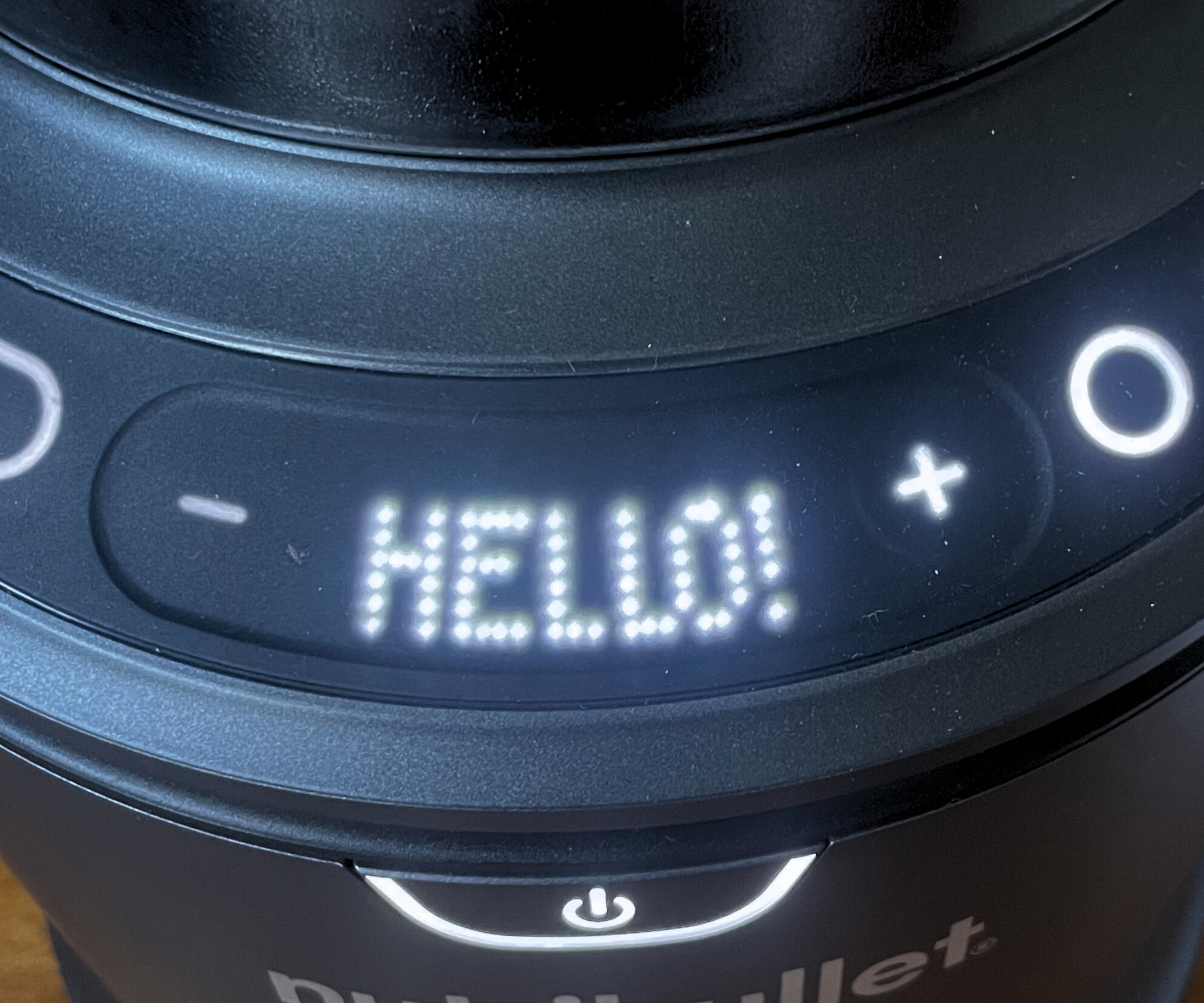
As soon as I plugged in the blender and twisted the pitcher into place, the panel lit up to greet me 'hello.' I loved this personal, modern touch. There are only three buttons and the manual explains how to use them clearly, while the recipe booklet has tons of inspiration, from chocolate smoothies to mushroom soup.
The motor base was pretty hefty and felt durable; I really liked the suction cup feet, which kept it firmly in place during use. Once you've got your ingredients in the jug, the lid clicks into place satisfyingly, so you don't have to fear spraying your ceilings with green smoothie.
Design expertise in your inbox – from inspiring decorating ideas and beautiful celebrity homes to practical gardening advice and shopping round-ups.
The 'Auto mode' offers hands-free convenience by automatically detecting your ingredients and selecting the optimal speed and blending time. While this feature is fascinating to watch, my tests with smoothies, dips, and soups revealed that it almost always engaged the highest speed setting at some point, which produced considerable noise. If you live in an apartment, have a sleeping baby nearby, or want to avoid disturbing sensitive neighbors, I'd recommend choosing a quiet blender instead.
Personally, I preferred using the manual and pulse settings, as I felt I had more control over my blends and the noise. Plus, they are equally easy to use.
Test 1: Smoothie
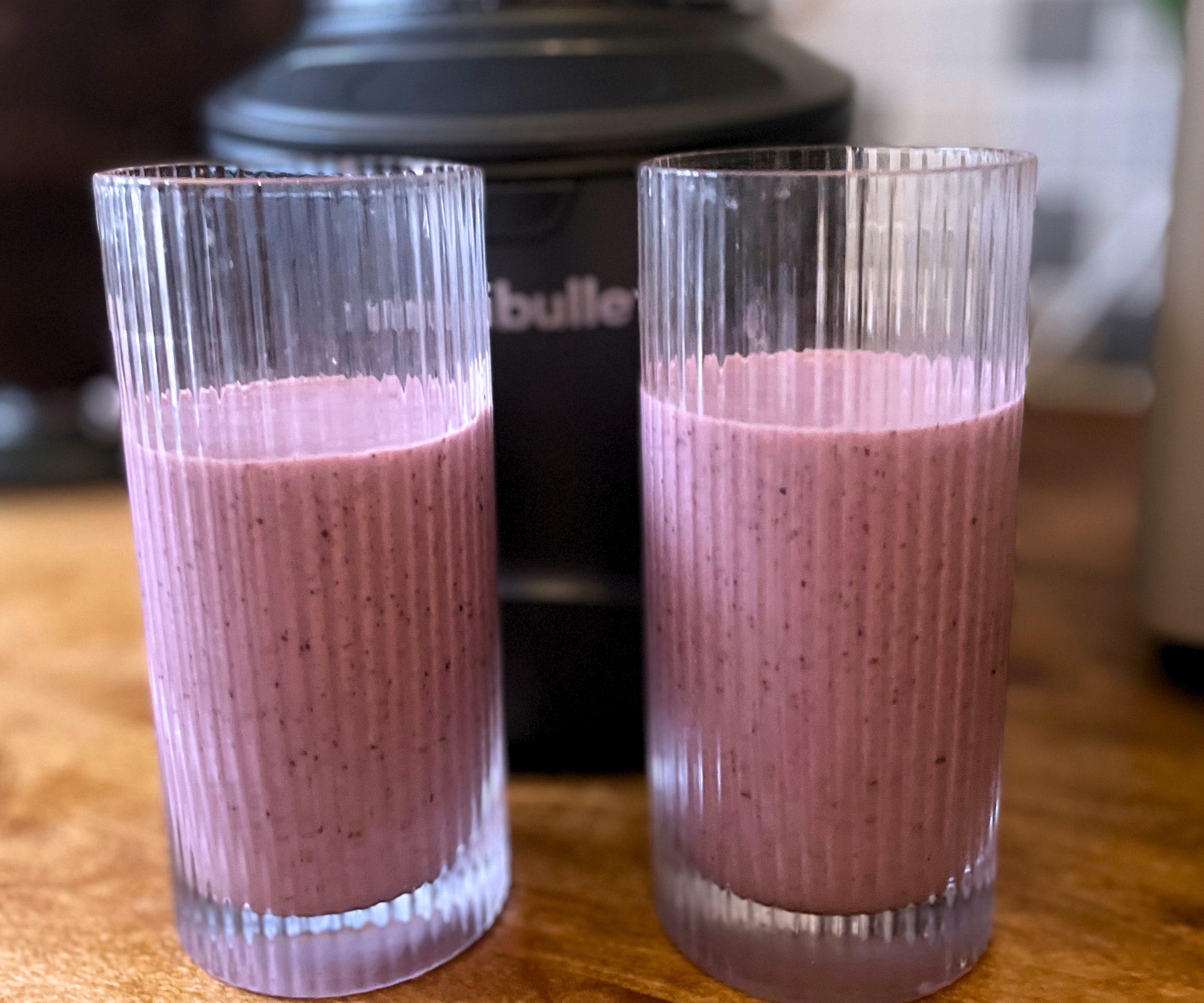
The first test we put all of our blenders through is on smoothies. We add oats, frozen bananas, berries, spinach, and almond milk to our drinks to start with. This gives a good test of how well the blender blades can handle frozen textures, seedy berries and tough greens and skins.
On the automatic setting, the smoothie blended in 20 seconds (there's a light up timer to help you keep track), leaving only minimal flecks of blueberry skin and spinach leaves. Impressively, even after adding protein powder and repeating the process, there were no lumps or graininess – a common issue with other blenders, but it seemed like the auto function detected the density and whipped it into shape.
I also made a smoothie bowl with frozen mango, kale, pineapple, banana, cashews and oat milk. This was even better than my first smoothie. The blend sensor created a creamy and cloud-like texture – hands-free.
Test 2: Hummus
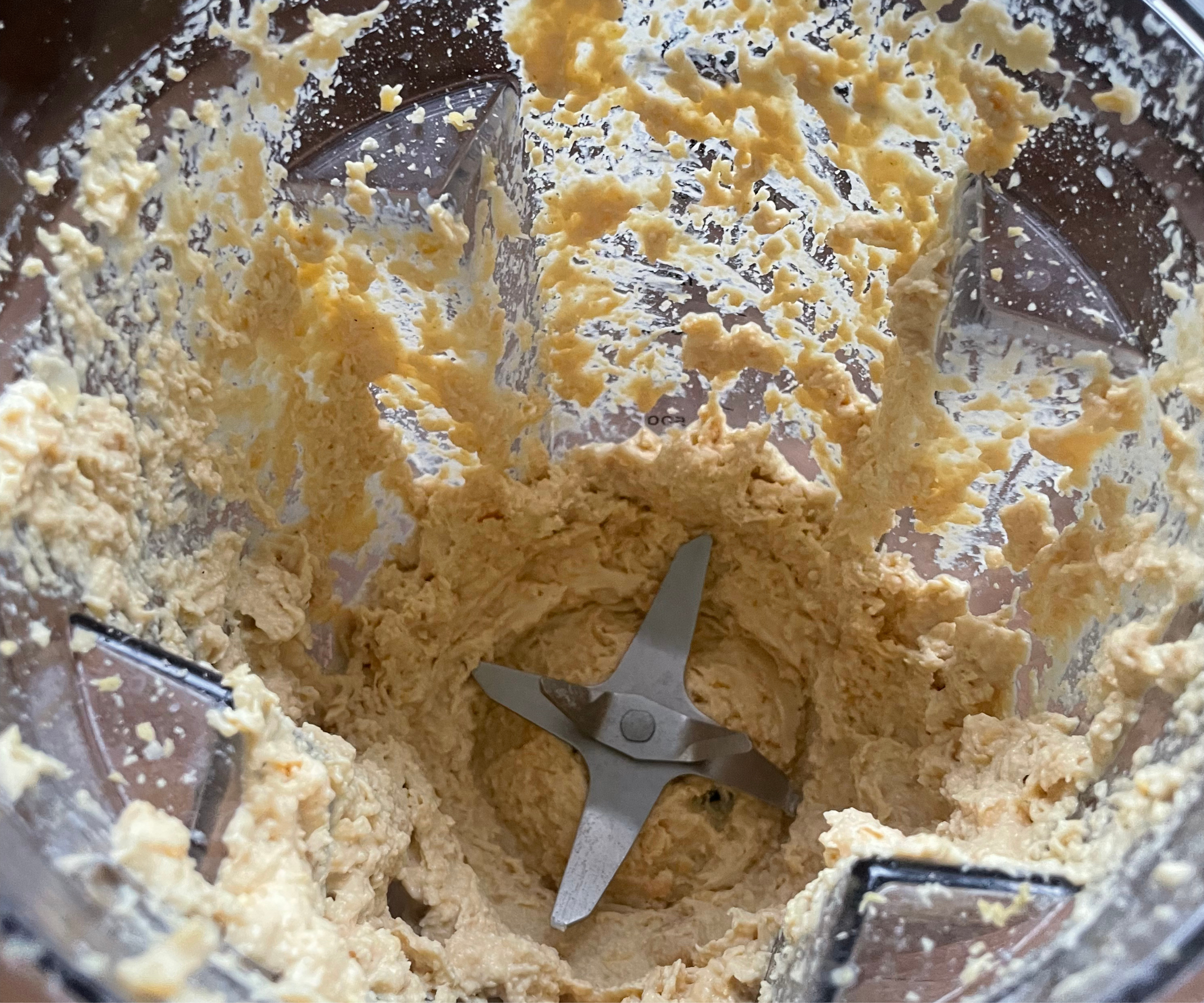
Excited by the smoothie results, I moved on to hummus. Combining garbanzo beans, tahini, olive oil, lemon juice, and a generous splash of aquafaba, I set the blender to Auto Mode. However, the SmartSense struggled. After 25 seconds, the hummus was stuck, and the motor was getting loud.
When I looked inside, my dip was pretty chunky, so I had to scrape down the sides and add more aquafaba. After two interventions, this helped create a vortex and achieve the hummus I was looking for. The takeaway? The SmartSense performs better with a higher liquid ratio.
Test 3: Soup
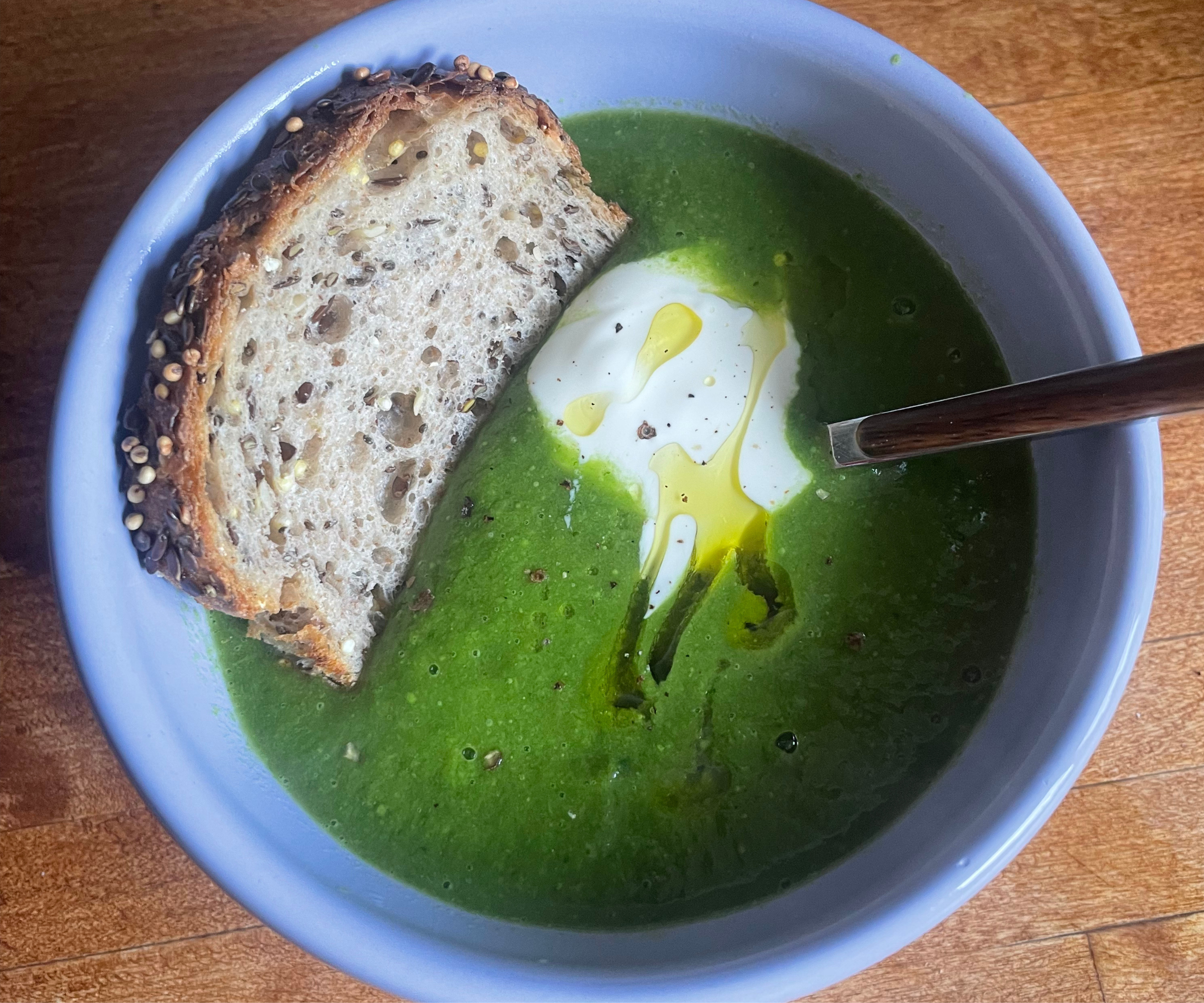
For the final test, I prepared a green soup with sautéed onions, broccoli, peas, spinach, kale, and basil, blended with chicken stock. The Auto Mode handled the fibrous ingredients effortlessly, producing a smooth, velvety soup in about 30 seconds. Pouring it back into the saucepan was mess-free, thanks to the pitcher’s well-designed spout. On the taste test, it was absolutely delicious –smooth and velvety, without a single chunk left behind.
Cleaning, storage, and maintenance
Cleaning the SmartSense was pretty easy. The dishwasher-safe pitcher simplifies the process, but hand-washing was manageable. A sponge and soapy water cleaned the interior thoroughly, and the blades weren’t overly sharp, reducing the risk of cuts.
However, I found the plastic ridges at the bottom of the pitcher a little tricky to clean after blending thicker mixtures like hummus, since they had trapped bits of garbanzo bean.
The compact design makes storage straightforward, and the lightweight pitcher is easy to handle. That said, the additional accessories, including the cups, tamper, and lids, require more storage space. If you don't want the combo, the SmartSense is available as a standalone piece of kit.
How does it rate online?
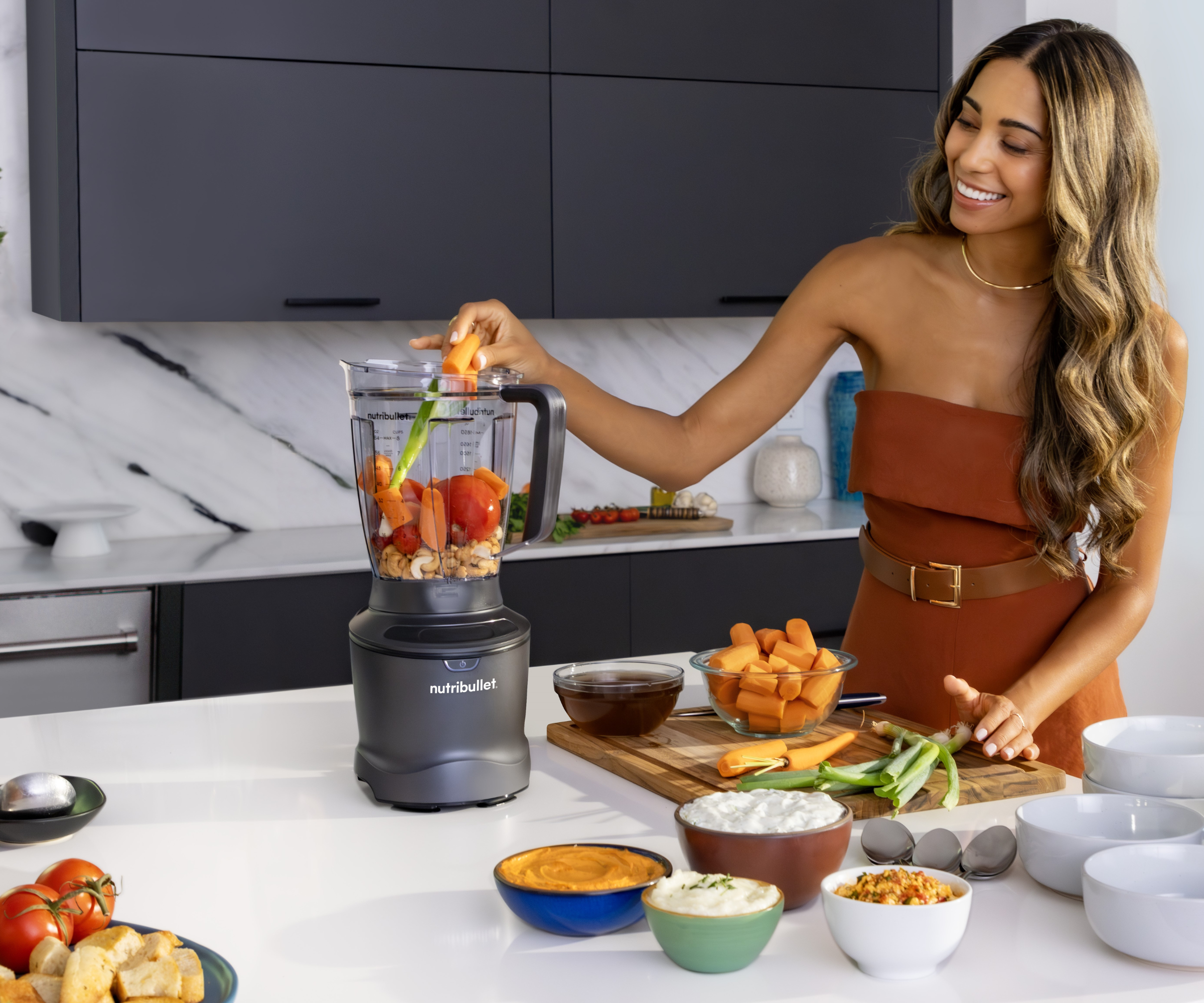
This is a very new blender, which only launched in October, so there aren't many reviews. However, the people who have tried it seem happy so far.
The most recent Amazon reviewer says that they love the fun greetings on the illuminated control panel. They agree with me that it's very easy to use and simple to clean, too. They mention the noise on tough ingredients, but they didn't seem put off on it.
How does it compare?
Compared to high-end models like Vitamix A3500, which we rated 5-stars as the best blender on the market, the SmartSense is less versatile. It lacks the robust motors, air-craft grade sharp blades and advanced features (e.g., vortex systems and heat settings) that premium models offer. However, for its price, it delivers solid performance and excels on simple recipes.
If you want to make silky-smooth hummus or crushed ice, I think the Braun TriForce Blender could be a better choice. We found the Braun blender to be super powerful on thick blends, with a spread setting that creates smooth, silky hummus in 45 seconds. The RRP is exactly the same on Amazon, at $149, but you won't get all the accessories included with the Nutribullet (like personal blending cups and lids).
Should you buy it?
If you’re looking for an affordable, family-friendly blender for smoothies and soups, the SmartSense Nutribullet Combo is a fantastic choice. It comes with two personal blending cups and lids, too – so you're really getting value for money. However, if you need a blender for tougher tasks or quieter operation, you may want to invest in a higher-end model.
How we test
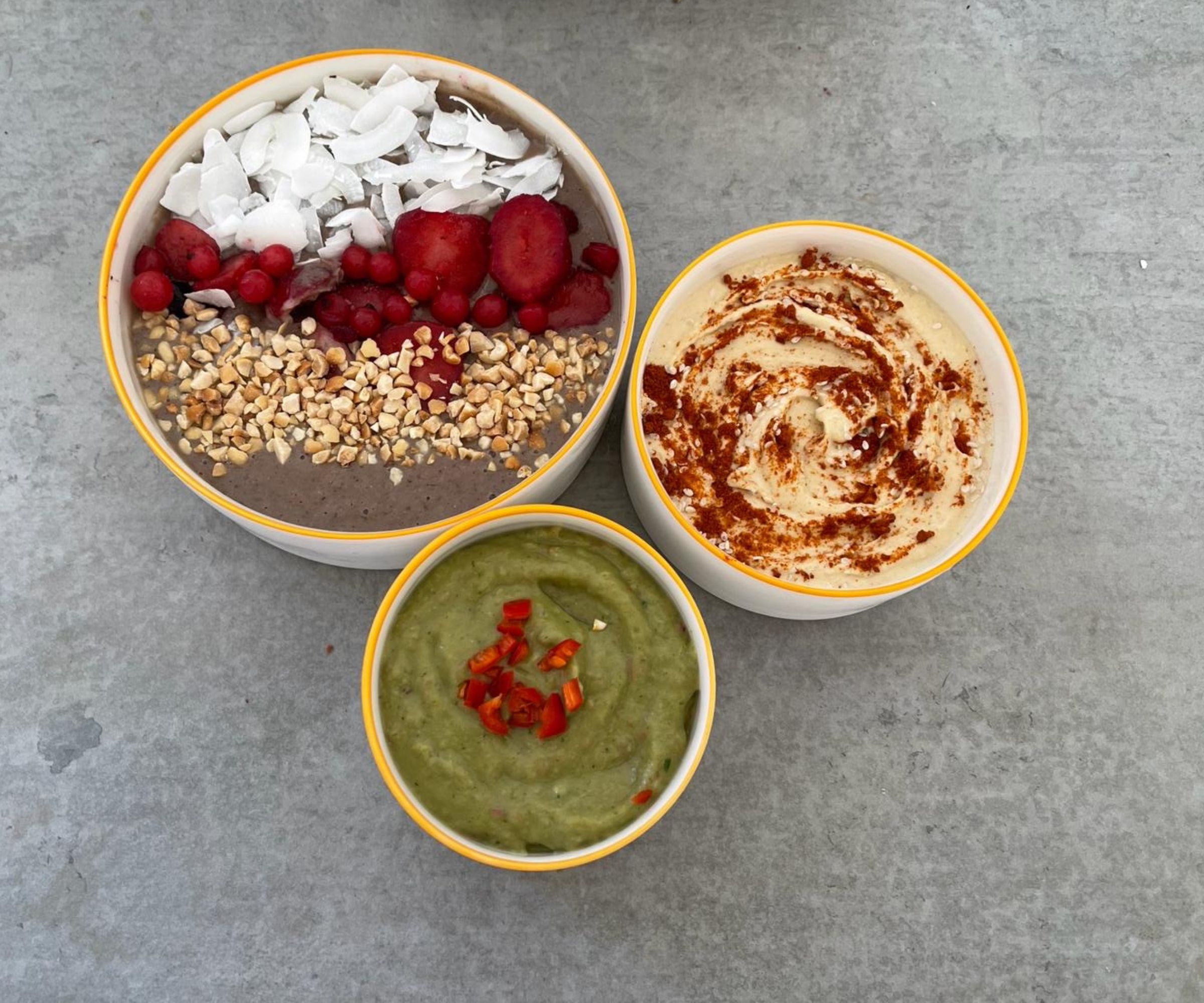
We have a meticulous and rigorous process for how we test blenders. This starts with a simple smoothie. We use frozen berries and spinach, in our smoothie mix, because they test how well a blender can power through tough skins and seeds. Once it's done that, we add protein powder to see whether the smoothie goes lumpy.
We also test how well the blender can make hummus. There's a lower liquid content in dips, so blenders often struggle to make a super smooth dip. We make hummus because chickpea skins can be tough to blend really finely.
The last test we put blenders through is on ice. Most blenders struggle to get ice into a misted, fine snow-like texture. If it's suitable for snow cones and iced cocktails, it's a success.
We'll also test any special functions, such as soups and sauces if a blender has them. We make notes on other parts of the process too, including cleaning, unboxing, and maintenance. Our team also compares the blender to all of the others that we've tested, so we can let you know where it sits in the market.
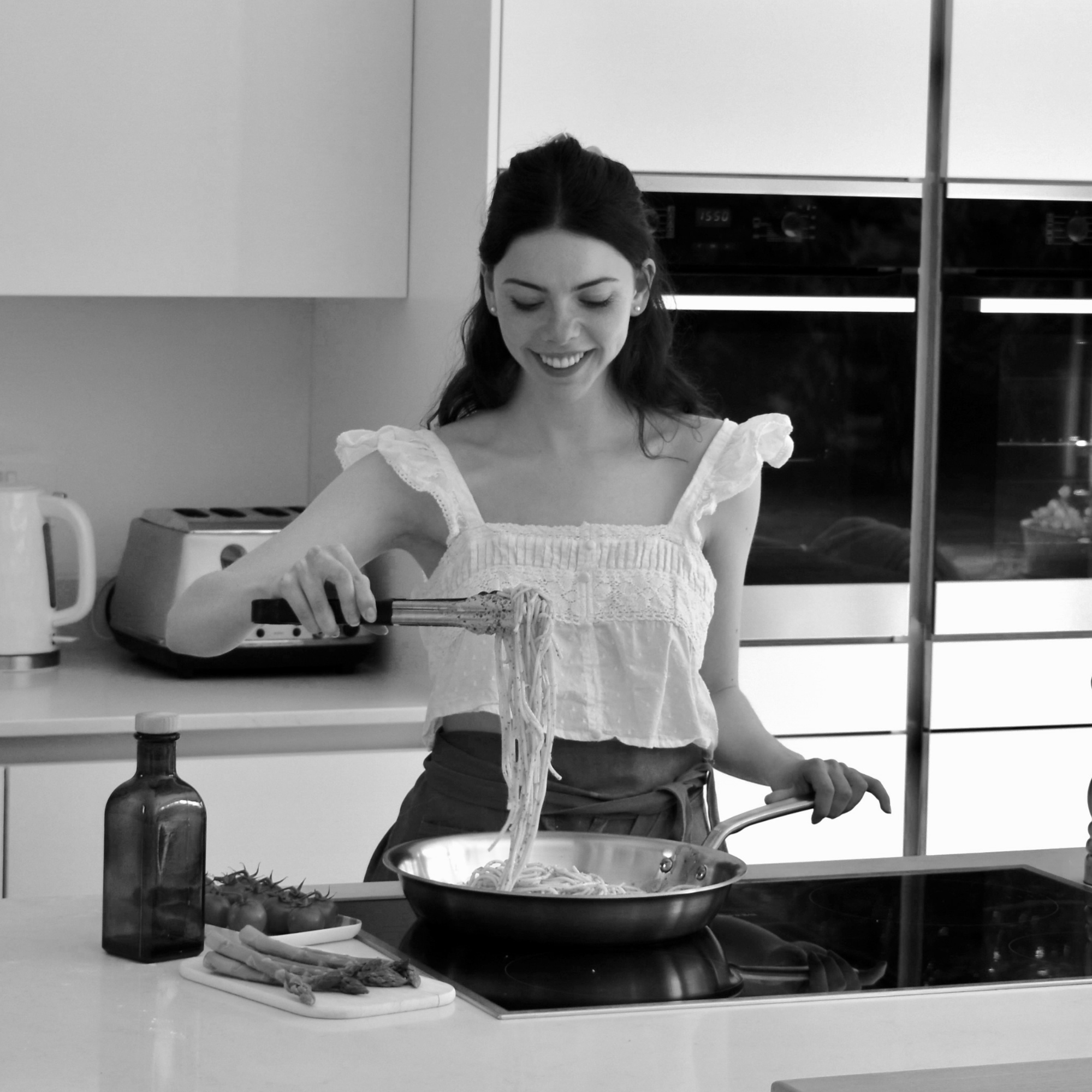
Lydia is the Kitchen Appliances Editor for Homes & Gardens, testing everything from air fryers and mixers to juicers and coffee machines. She trained in Culinary Arts at Leiths School of Food & Wine and previously served as the Recipe Editor for Mindful Chef.